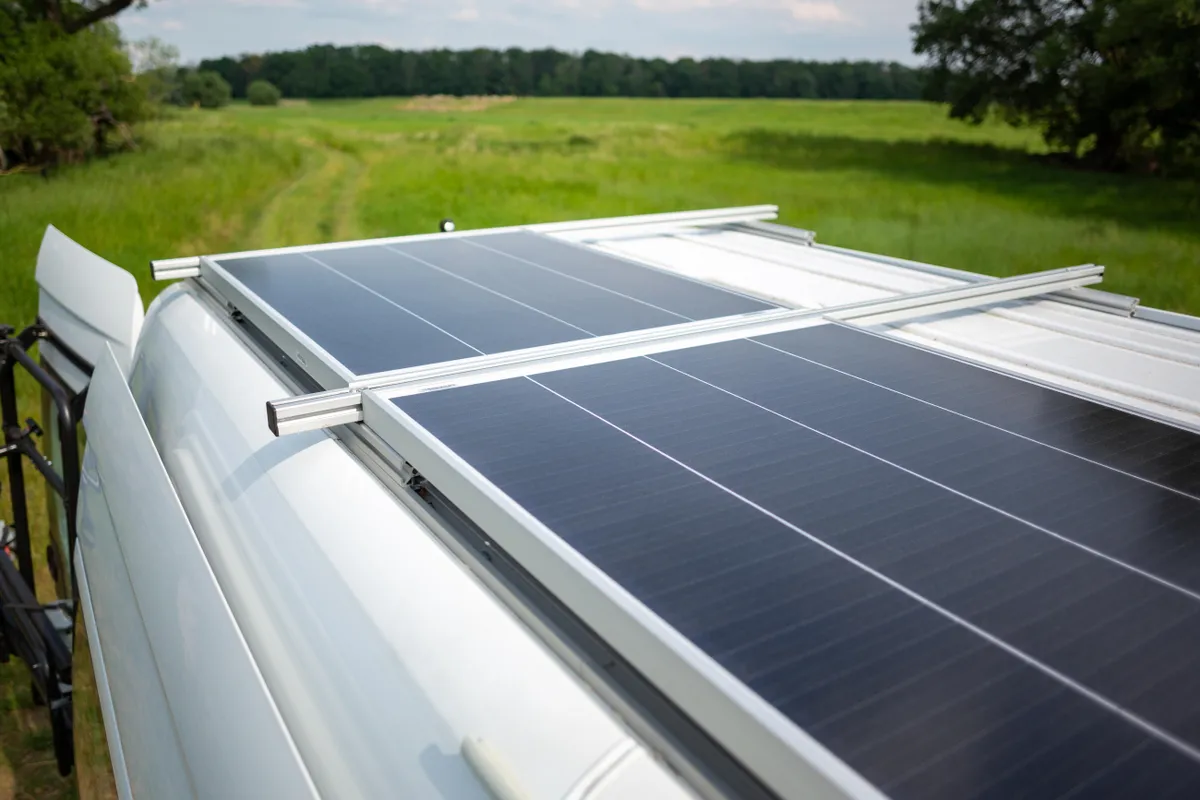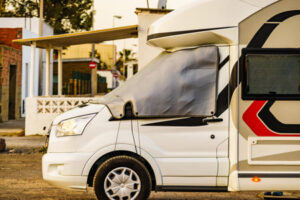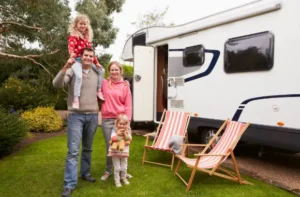Introduction: Brief about solar energy and its increasing popularity.
Solar energy has emerged as one of the most sustainable and eco-friendly sources of power in recent years. With the increasing awareness of environmental concerns and the need to reduce carbon footprints, more individuals and industries are turning to solar power as a viable alternative to traditional energy sources. Solar panels, which harness the sun’s energy and convert it into electricity, have become a common sight on rooftops, open fields, and even on vehicles like caravans.
Caravans, being mobile homes, offer a unique opportunity to utilize solar energy. Given their nature of travel and often being in open spaces, they are ideally positioned to capture sunlight efficiently. As a result, many caravan owners are exploring the possibility of using solar panels, not just the portable ones designed for caravans but also the ones used in residential settings, to power their mobile homes.
Benefits of Solar Energy for Caravans: Highlighting the environmental and cost-saving benefits.
Harnessing solar energy for caravans presents a multitude of benefits. Environmentally, it reduces the reliance on non-renewable energy sources, thereby decreasing the carbon footprint of the caravan. Solar panels produce no emissions, making them a clean energy source. This is especially beneficial for nature enthusiasts who use caravans to explore pristine environments, ensuring that they leave minimal environmental impact during their travels.
From a cost perspective, while there’s an initial investment in setting up the solar panels, the long-term savings are substantial. Solar panels can significantly reduce or even eliminate the need for external power sources, especially in sun-rich areas. Over time, the energy savings accumulate, making the caravan’s operation more cost-effective. Moreover, with the increasing efficiency of solar panels, even a few hours of sunlight can power a caravan’s essential functions for a day.
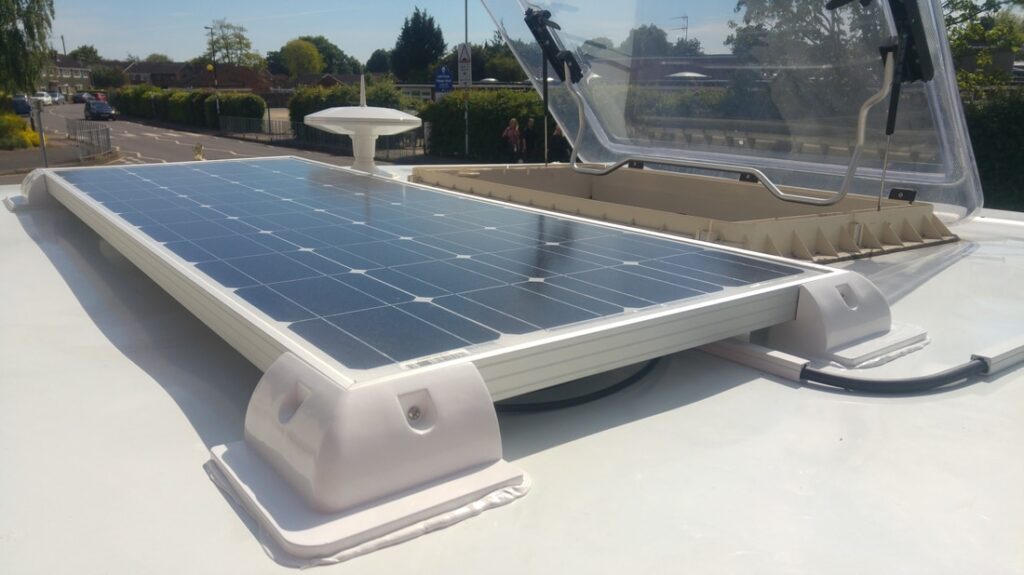
Types of Solar Panels: A detailed comparison between house solar panels, portable solar panels, and other types available in the market.
Solar panels come in various types, each designed for specific needs and applications. House solar panels, often referred to as fixed or stationary panels, are designed for residential use. They are typically larger, more durable, and have a higher energy output. These panels are built to last and can withstand various weather conditions, making them a potential choice for caravans.
Portable solar panels, on the other hand, are designed with mobility in mind. They are lighter, more compact, and often come with features that allow easy setup and takedown. While they might not have the same energy output as house panels, they are more convenient for on-the-go energy needs. Apart from these, there are also flexible solar panels that can be rolled up, and thin-film solar panels which are lightweight but less efficient. Each type has its pros and cons, and the choice depends on the specific needs of the caravan owner.

Technical Differences: Dive deeper into the technical aspects, such as efficiency, wattage, and materials used.
The technical differences between house solar panels and portable ones are significant. House solar panels are usually made of monocrystalline or polycrystalline cells, known for their efficiency and durability. They can produce around 250 watts or more, depending on their size and the technology used. This high wattage means they can power more significant appliances and systems in a caravan, from refrigeration to heating.
Portable solar panels, while also made of similar materials, are designed for lower energy output, often producing around 100W. Their efficiency might be slightly lower, and they are primarily meant for smaller devices and appliances. However, they make up for this with their ease of use and transport. It’s essential for caravan owners to understand these technical differences to make an informed decision based on their energy needs and the appliances they intend to use.
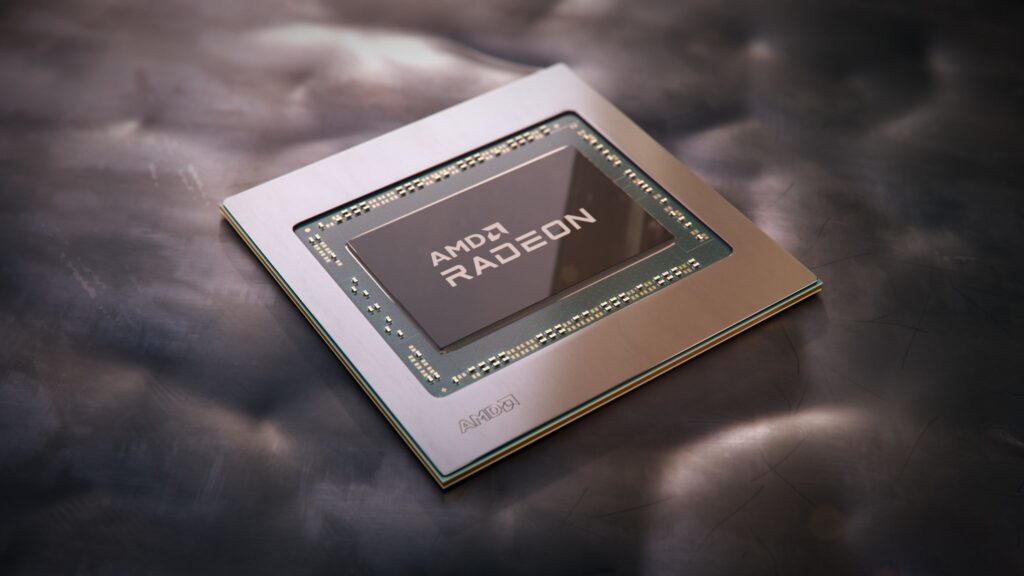
Installation Process: A step-by-step guide on how to install house solar panels on a caravan.
Installing house solar panels on a caravan is a meticulous process that requires careful planning. Firstly, one must ensure that the caravan’s roof or designated installation area can support the weight and size of the house solar panel. Once this is ascertained, the next step involves setting up a mounting system. This system should be robust enough to hold the panel securely, especially when the caravan is in motion.
After the mounting system is in place, the solar panel can be fixed onto it. The panel should be positioned in a way that it receives maximum sunlight throughout the day. Once the panel is secured, it needs to be connected to the caravan’s electrical system. This involves setting up a solar controller or regulator, which ensures that the battery doesn’t get overcharged. The panel is then connected to the battery via this controller. It’s crucial to ensure all connections are secure and waterproofed to prevent any electrical issues. Proper installation ensures the efficient functioning of the solar panel and prolongs its lifespan.
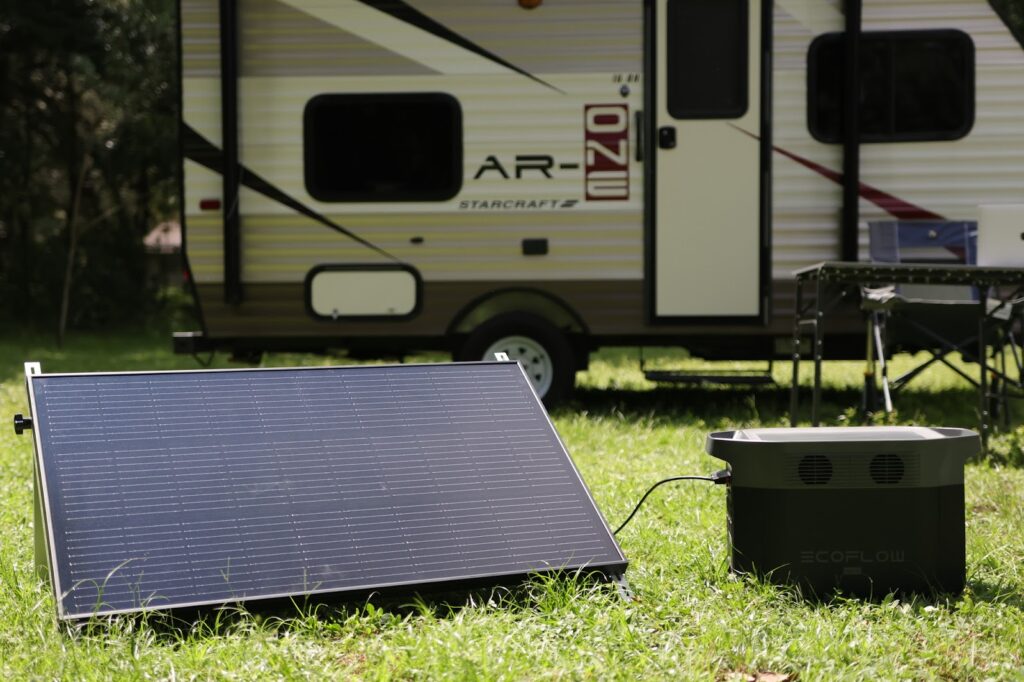
Maintenance and Care: Tips on how to maintain and care for solar panels to ensure longevity.
Solar panels, whether for residential use or caravans, require regular maintenance to ensure they operate at peak efficiency. Dust, dirt, bird droppings, and other debris can accumulate on the surface of the panels, reducing their ability to absorb sunlight effectively. It’s essential to clean the panels periodically with water and a soft cloth or brush. Avoid using abrasive materials or harsh chemicals, as these can damage the panel’s surface.
In addition to cleaning, it’s crucial to inspect the panels and their connections regularly. Check for any signs of wear, corrosion, or damage. Ensure that all connections are tight and that there’s no water ingress, especially after heavy rains or storms. If the caravan is stored for extended periods, consider covering the panels to protect them from prolonged exposure to the elements. Proper maintenance not only ensures efficient energy production but also extends the lifespan of the panels.
Cost Analysis: A breakdown of the costs involved in using house solar panels vs. buying new portable ones for caravans.
The decision to use house solar panels on a caravan or invest in portable ones often boils down to cost considerations. House solar panels, given their size and efficiency, tend to be more expensive upfront. However, if a caravan owner already has these panels or can acquire them at a reduced cost, the initial investment can be significantly lower. Additionally, the higher energy output of house panels can lead to more significant savings in the long run, as they can potentially eliminate the need for other power sources.
On the other hand, portable solar panels, while generally cheaper, might not offer the same energy output. This could mean that caravan owners might need to invest in multiple panels or supplementary power sources, especially for extended trips. It’s also worth noting that while portable panels are designed for mobility, their lifespan might be shorter than fixed house panels, leading to potential replacement costs. When analyzing costs, it’s essential to consider not just the initial investment but also long-term savings, potential replacement costs, and the intended use of the caravan.
Safety Considerations: Highlighting the safety measures to be taken while installing and using solar panels on caravans.
Safety is paramount when dealing with electrical installations, and solar panels are no exception. When installing solar panels on a caravan, it’s crucial to ensure that all connections are secure and insulated to prevent any electrical shorts or fires. It’s also advisable to use a solar controller or regulator to ensure the battery doesn’t get overcharged, which can lead to battery damage or even explosions.
Beyond installation, it’s essential to be aware of the weight and balance implications of adding solar panels to a caravan. House solar panels, being heavier, can affect the caravan’s center of gravity. This can impact its stability, especially when in motion. It’s crucial to ensure that the weight is evenly distributed and that the caravan’s total weight, including the panels, doesn’t exceed its maximum allowable weight. Regularly inspecting the panels and their mountings for any signs of wear or damage can prevent potential hazards during travel.
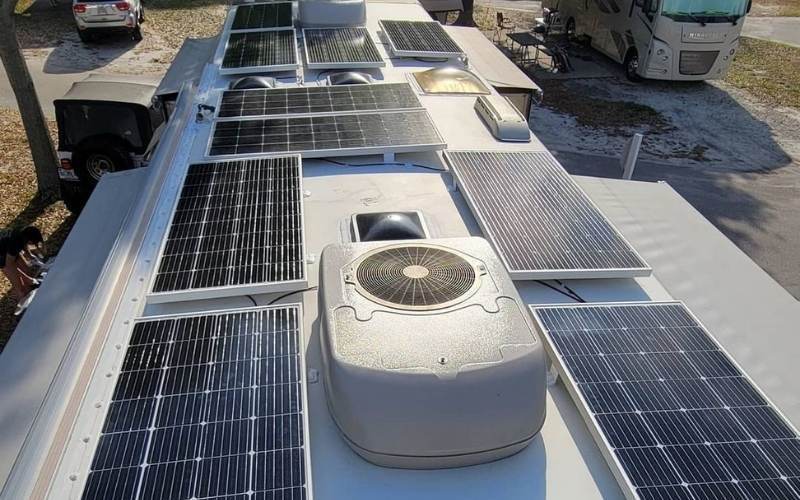
Case Studies: Real-life examples of people who have successfully used house solar panels on their caravans.
Case studies offer valuable insights into the practical aspects of using house solar panels on caravans. For instance, a family who embarked on a cross-country trip using house solar panels reported significant savings on their energy costs. They were able to power all their essential appliances, including a refrigerator, lights, and a heater, solely using the energy from their panels. Their experience highlighted the importance of proper installation, as they had to ensure the panels were securely mounted to withstand high-speed travel and varying weather conditions.
Another case involved a couple who opted for a hybrid system, combining house solar panels with a portable one. They used the house panel for their primary energy needs and the portable one as a backup or supplementary source. This approach provided them with flexibility, especially during cloudy days or when they needed additional power. Their experience underscores the importance of understanding one’s energy needs and finding a solution that offers both efficiency and flexibility.
Conclusion: Summarizing the feasibility and benefits of using house solar panels on caravans.
The idea of using house solar panels on caravans presents a compelling proposition. On the one hand, these panels offer higher energy output, durability, and the potential for significant long-term savings. On the other, there are considerations regarding weight, installation, and initial costs. However, as renewable energy technologies advance and become more accessible, the benefits of solar energy for caravans become increasingly evident.
For caravan enthusiasts looking to embrace sustainability and reduce their carbon footprint, solar panels, whether house or portable, offer a viable solution. The key lies in understanding one’s specific needs, conducting thorough research, and making informed decisions. With proper planning and consideration, solar panels can transform the caravaning experience, making it more eco-friendly, cost-effective, and enjoyable.
